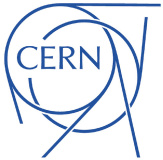The European Organization for Nuclear Research (CERN), home to the world’s largest particle physics laboratory, invites applications for the position of Computing Engineer: Data Storage Systems in Geneva, Switzerland. This exciting role offers a unique opportunity to contribute to the archival, preservation, and distribution of Large Hadron Collider (LHC) data, supporting thousands of researchers across the globe.
If you are a motivated early-career software engineer or computer scientist looking to make an impact at one of the most prestigious scientific institutions, this is your chance to be part of cutting-edge science and technology.
Job Summary :
| Field | Details |
|---|---|
| Title | Computing Engineer: Data Storage Systems (IT-SD-TAB-2025-155-GRAE) |
| Organization/Publisher | CERN – European Organization for Nuclear Research |
| Work Location | Geneva, Switzerland |
| Research Field | Data Storage Systems, Software Engineering, IT Infrastructure |
| Funding Info | CERN Graduate Programme |
| Application Deadline | 12 September 2025, 23:59 CEST |
| Posted Date | August 2025 |
| Country | Switzerland |
| Researcher Profile | Graduate Computing Engineer |
| Apply Button | Apply at CERN Careers |
| Required Qualification | Bachelor’s or Master’s in Computer Science, Software Engineering, or related |
| Required Experience | Max. 2 years post-graduation professional experience |
| Salary Details | CHF 5196 – 5716/month (net of tax) + benefits |
About the Role
As a Computing Engineer in CERN’s Tape Archive (CTA) team, you will contribute to both software development and operations supporting the laboratory’s massive data storage systems, including 2,000 servers and over 50,000 high-capacity tapes.
Your work will involve:
-
Maintaining and developing C++/Linux software.
-
Optimising and automating storage services.
-
Enhancing monitoring and alerting capabilities.
-
Troubleshooting operational issues and ensuring service reliability.
-
Collaborating with international experiment data management teams.
Candidate Profile
Essential Skills
-
C++ software development.
-
Linux systems administration.
-
Bash/Python scripting.
Desirable Skills (training available)
-
SQL databases.
-
Git and version control.
-
Containers (e.g., Kubernetes).
-
Monitoring tools (Grafana, Prometheus).
-
Strong English (spoken/written) and willingness to learn French.
Eligibility Criteria
-
National of a CERN Member or Associate Member State.
-
Bachelor’s or Master’s degree (Computer Science/Software Engineering or related).
-
≤ 2 years of professional experience post-graduation.
-
Never held a CERN Fellow/Graduate contract before.
-
PhD holders not eligible.
Employment Conditions
-
Contract duration: 24 months (possible extension to 36 months).
-
Working hours: 40 hours per week; may include stand-by duties, nights, and holidays.
-
Target start date: 1 January 2026.
Salary & Benefits
-
Monthly stipend: CHF 5,196 – 5,716 (net of tax).
-
CERN health scheme (self, spouse, children).
-
CERN Pension Fund.
-
Family, child, and infant allowances (where applicable).
-
30 days paid leave per year.
-
Travel expenses (start and end of contract).
-
Training, on-the-job learning, and in-house language courses.
About CERN
CERN is the world’s leading particle physics laboratory, where physicists and engineers explore the fundamental structure of the universe using the Large Hadron Collider (LHC) and other advanced instruments. With an exabyte-scale data challenge, CERN’s computing infrastructure is among the most advanced globally, serving a diverse and international scientific community.
Application Process
Interested candidates must apply online through the official CERN portal.
-
Deadline: 12 September 2025 (23:59 CEST).
-
Reference: IT-SD-TAB-2025-155-GRAE.
-
Apply here: CERN Careers – Official Portal
Official Reference
🔗 CERN Official Job Ad – Computing Engineer Data Storage Systems
⚠️ Disclaimer
This article provides a summary of the official job advertisement published by CERN. For full eligibility, terms, and application requirements, please consult the official CERN recruitment portal.
